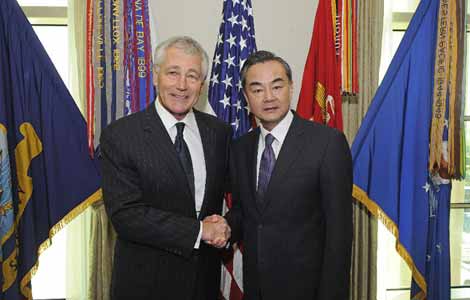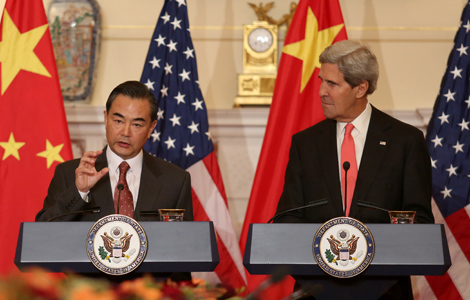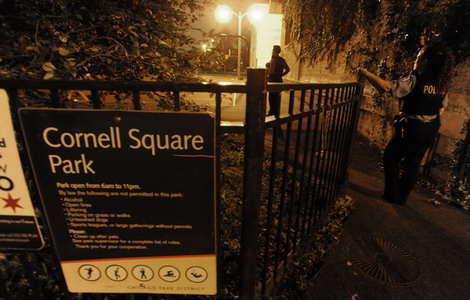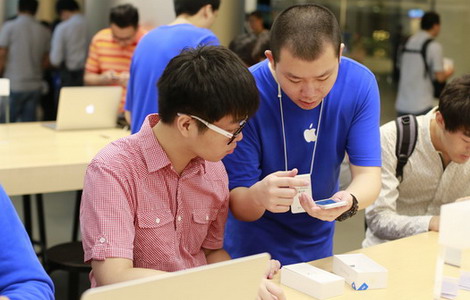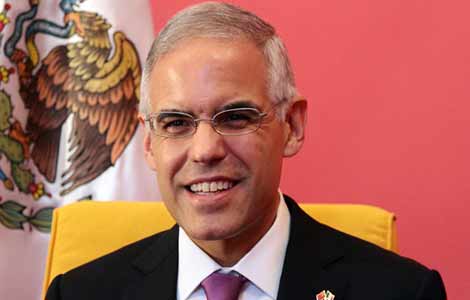Action pledged for new type of Sino-US ties
Updated: 2013-09-21 00:41
By CHEN WEIHUA (China Daily)
|
||||||||
"We believe that there needs to be early agreement on the decision to be taken by the OPCW (Organization for the Prohibition of Chemical Weapons), and at the same time the United Nations Security Council also needs to recognize and support this decision," he said.
"Ultimately, the issue of Syria needs to be resolved through political means. The Chinese side will continue to play its positive and constructive role in that direction," said Wang, a visiting scholar at Georgetown University in 1997 and 1998.
Kerry said that while the US appreciates China's support for a political solution, the two nations have disagreed sharply over how the international community should respond to the Syrian government's use of chemical weapons.
"With negotiation ongoing at the Security Council, we look forward to China playing a positive, constructive, important role," he said.
Analysts said China and Russia felt "somewhat duped" two years ago when a UN Security Council resolution on a no-fly zone over Libya was abused by the US and its NATO allies for regime change.
Both are cautious now that any UN Security Council resolution on Syria will not endorse the use of force.
Bonnie Glaser, senior adviser for Asia at the Center for Strategic and International Studies, said the disagreement on Syria will not have a major impact on the US-China relationship. "Syria is not vital to the Chinese national interest," she said.
New agreement
Wang, who travels to New York at the weekend for the 68th session of the UN General Assembly next week, said he is confident the two sides will reach a new and important agreement regarding the denuclearization of the Korean Peninsula.
"To achieve the denuclearization of the Korean Peninsula and maintain peace and stability in Northeast Asia serves the common interests of China and the United States," Wang said.
He noted that Thursday was the eighth anniversary of the September 19 Joint Statement, a statement from the Six-Party Talks on the denuclearization of the Korean Peninsula. These talks, which have been stalled since 2008, involve the Democratic People's Republic of Korea, the Republic of Korea, China, the US, Japan and Russia.
While the US has insisted the DPRK's denuclearization is a precondition for the resumption of the Six-Party Talks, the DPRK said it does not accept any preconditions, while China has urged the US to show more flexibility to get the talks restarted.
Kerry praised China for playing "a very special role in addressing the North Korean nuclear challenge and in achieving our shared goal, the peaceful denuclearization of the Korean Peninsula".
Charles Armstrong, a history professor at Columbia University and an expert on the Korean Peninsula, said it is difficult for the US to meet the DPRK's demand for no preconditions, as Washington has consistently called for it to halt its nuclear weapons program before negotiations can begin.
"Probably the best way out is for North Korea to halt activity at its Yongbyon plant, and more generally agree to freeze its nuclear program, during the period of US-DPRK talks," he said.
Most Viewed
Editor's Picks

|

|

|

|

|

|
Today's Top News
Trending news across China
Charges against Saudi princess in US dismissed
Super typhoon Usagi to hit S China
US not to levy punitive duties on Chinese shrimps
Philippines evacuates coast as typhoon nears
BlackBerry warns of big loss, 4,500 job cuts
Syria details part of chemical arsenal
Action pledged for new type of Sino-US ties
US Weekly

|

|
